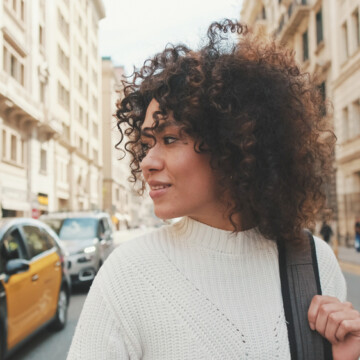
Shampoo is the one product that virtually everyone uses as part of their hair care routine. It works to remove the gunk, oils, product, and debris that our hair comes in contact with.
This seems simple enough, but do you really know what shampoo does to your hair to give it the clean slate you've come to expect? Most people don't, and we seek to change that. In this article, we'll tell you exactly what shampoo does.
Table of Contents
- 1 What Does Shampoo Do?
- 2 How Does Shampoo Work?
- 3 Unwanted Effects of Shampoo
- 4 What Happens if You Don't Use Shampoo?
- 5 Is It Okay to Shampoo Every Day?
- 6 How Often to Shampoo Hair
- 7 Do Shampoos Condition the Hair?
- 8 Do Shampoos Make Your Hair Grow?
- 9 How to Use Your Shampoo for the Best Results
- 10 Shampoo Alternatives
- 11 The Best Shampoo Type For All Hair Types
- 11.1 What Does Blue Shampoo Do to Your Hair?
- 11.2 What Does Detox Shampoo Do to Your Hair?
- 11.3 What Does Tea Tree Shampoo Do for Your Hair?
- 11.4 What Does Green Shampoo Do to Brown Hair?
- 11.5 What Does Red Shampoo Do to Hair?
- 11.6 What Does Apple Cider Vinegar Shampoo Do for Your Hair?
- 11.7 What Does Silver Shampoo Do to Your Hair?
- 11.8 What Does Pink Shampoo Do to Your Hair?
- 11.9 What Does a Bonding Shampoo Do?
- 11.10 What Does Hydrating Shampoo Do for Your Hair?
- 11.11 What Does Clarifying Shampoo Do to Colored Hair?
- 11.12 Related Articles
What Does Shampoo Do?
Shampoo is a hair care product designed to effectively clean your hair strands, removing dirt, product residue, and odors, such as smoke or sweat, from the hair and scalp. Additionally, shampoo can remove excess oil from the hair. The oil, called sebum, is secreted by sebaceous glands and keeps your hair moisturized, reducing the likelihood of breakage or a dry, frizzy appearance.
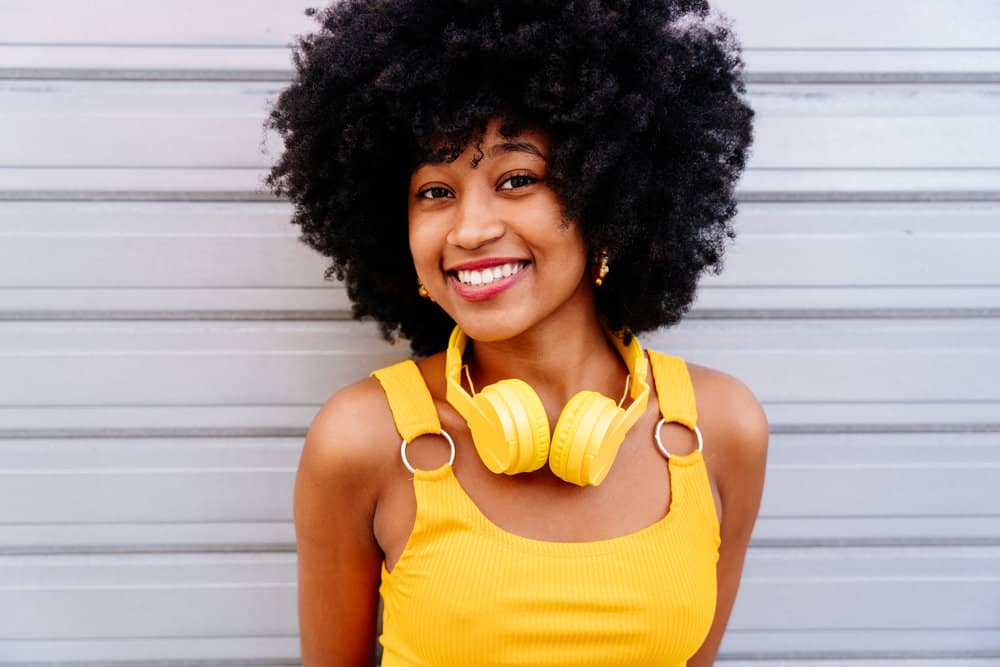
How Does Shampoo Work?
Shampoo is made up of a combination of cleansers, moisturizers, fragrances (natural or artificial), preservatives, and more. Its main purpose is to remove oils, dirt, and leftover or built-up product from your hair.
Shampoo contains surfactants, which play a huge part in cleansing the hair. These molecules emulsify the sebum (scalp oils) so that it can blend with the water you've already applied to your hair and be rinsed down the drain.
When you rinse away your shampoo, you're eliminating all of the debris, dirt, and scalp oils the shampoo came in contact with.
This is a very general look at what shampoo does from a cleansing standpoint. In case you didn't know, though, shampoo has some other functions that can be helpful in your hair care routine.
- Better smelling hair. Shampoos make your hair smell better by removing sometimes-offensive odors from dirt and sebum. But that's not all; they also leave behind a pleasant fragrance. Most of us have a shampoo that we love solely for its smell.
- More hydrated hair. For a long time, shampoo was formulated in a way that didn't prioritize moisture. That didn't bode well for those who needed more moisture in their hair routine to promote hair health. Now, shampoos routinely contain hydrators and moisturizers to reduce the drying effects of the surfactants in the shampoo's formula. Some shampoos contain more hydrating ingredients than others, and they leave the hair feeling soft and moisturized.
- A calmer scalp. An enormous number of people suffer from dandruff, psoriasis, and other scalp conditions that lead to scalp itch, irritation, and other uncomfortable symptoms. For this reason, innovative shampoo companies have added dandruff medications and scalp soothers to their shampoos (i.e., anti-dandruff shampoos). One of the most popular dandruff shampoo brands is Head and Shoulders. It can be credited with helping countless people take back control over their dandruff.
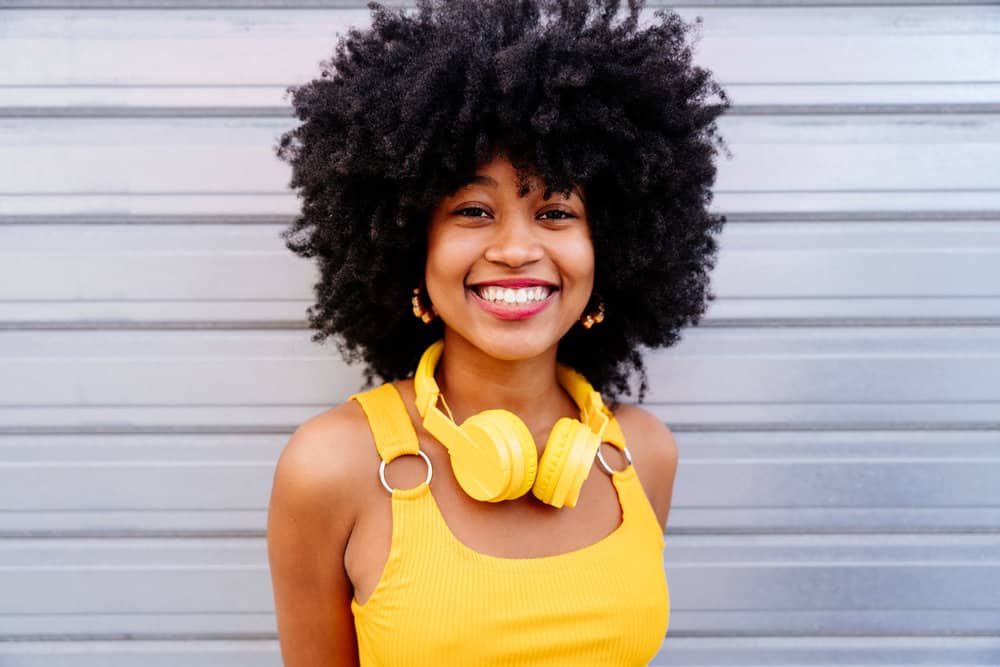
Unwanted Effects of Shampoo
Many of us have a love-hate relationship with shampoo due to the fact that it doesn't always perform the way we expect it to. The biggest problem people run into with traditional shampoos is that they are too harsh, and we can thank sulfates for that.
Sulfates are very strong surfactants that can clear away just about anything in their pat - or, in this case, on your scalp and hair.
When used sparingly, sulfate-containing shampoos don't cause a ton of issues as far as hair damage goes, but if you use a sulfate shampoo on a regular basis, you can experience some unwanted effects:
- Dry scalp. Some shampoos are too good at cleansing sebum and product buildup from the scalp. And it's in this case where people may develop dry scalp. When you scratch your dry scalp, you can introduce bacteria through the superficial cuts you create there. The result, then, could be an infection. That's a situation no one wants to be in.
- Dry hair. Sometimes, a single shampooing session can leave our hair too parched to style without snapping hairs. That's often the case with hair that's prone to dryness - like curls. It's for this reason that many curly folk forego shampoo entirely and opt instead for cowashing or water-only washing.
Note: In rare cases, shampoo may be formulated to be a little too gentle and leave behind the gunk you set out to eliminate. In this case, you'll have wasted your time and will have to go through the cleansing process again with another product.
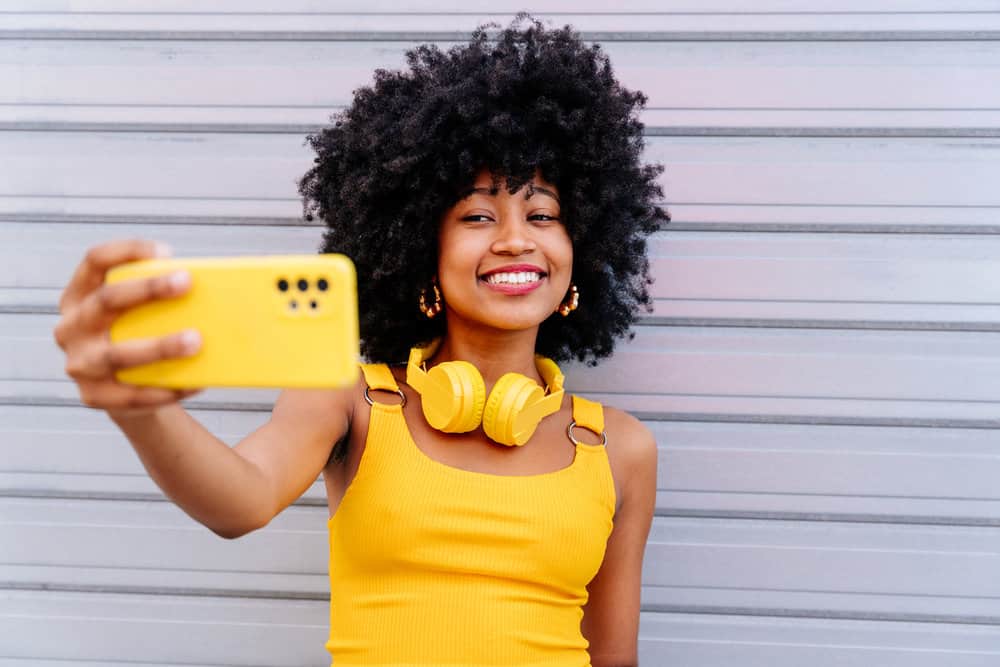
What Happens if You Don't Use Shampoo?
Many of the unwanted effects of shampoo won't happen to most people. But for the people unlucky enough to experience one or more of them, it's not unreasonable to wonder whether you can simply forego shampoo.
If you go that route and don't use shampoo at all, you could experience strong buildup, and your hair could become weighed down by said buildup. But that's not guaranteed to happen.
There are shampoo alternatives that many people use when they go off of shampoo, and they include co-washes, baking soda paste, apple cider vinegar, and more. Some people skip the products altogether and just use water for washing their hair.
It can remove sebum and product as well, though to a lesser extent than shampoo could. The thing to remember here is that shampoo is not the only option you have for hair cleansing. You can get a good clean with other products.
Still, what you may find when you stop using shampoo is that your hair gets dirtier and dirtier over time, no matter how much you wash with your alternative cleanser (or water only).
If the shampoo alternative you use is not getting all the gunk out, you may need to supplement with shampoo here and there. The number of times you need to shampoo in a month will depend on your preferences, your hair type, the products you use, and more.
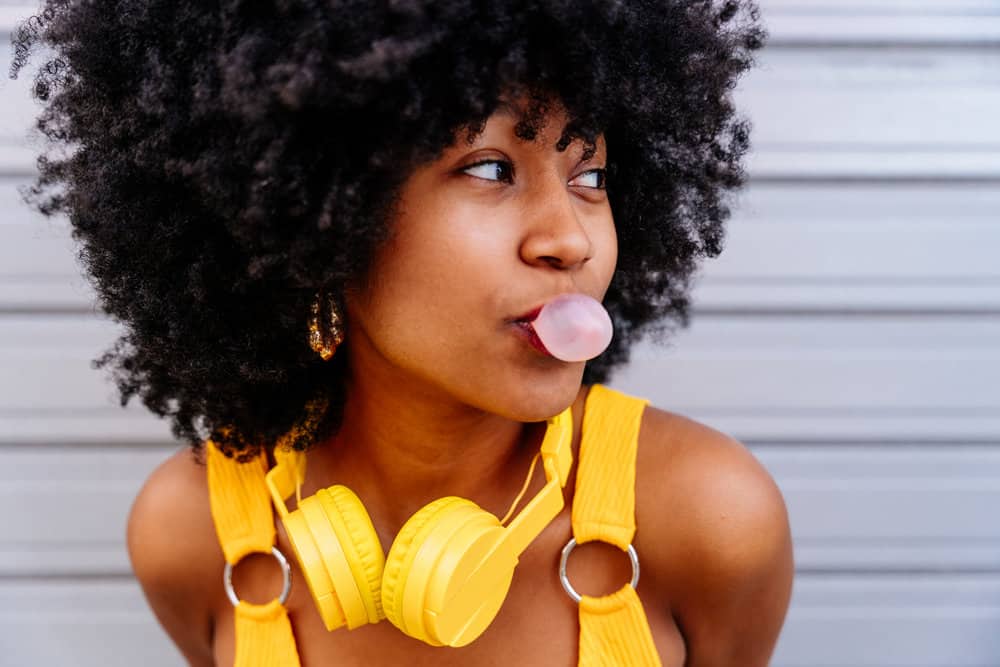
Is It Okay to Shampoo Every Day?
This is a question that many have begun to ask after natural hair care became mainstream. For a long time, people thought that they needed to wash their hair every day in order to keep it healthy, and what we've found is that daily shampooing can be too hard on the hair, leaving it dry and brittle.
When your hair is thirsty, when you go to care for or style it, you could experience more breakage than you would if your strands were hydrated. And let's not even get into the damage associated with coloring, straightening, bleaching, or otherwise processing already-dry hair - it's a disaster waiting to happen.
Another issue that could come up with everyday shampooing is an overproduction of oil, which is counterproductive to this aggressive hair shampooing routine.
When you're overzealous with shampooing, you dry out your scalp, which sends your hair follicles into sebum production overdrive.
And that means - you guessed it - greasy, dirty-looking hair. So, it's not a good idea at all to wash your hair every day, especially if you have an oily hair issue in the first place.
But that's not all - when you wash color-treated hair every day, your hair color won't stick around for long. Every time you shampoo colored hair, you wash some of the color down the drain. The more often you wash your hair, the quicker your hair dye will fade.
There are many other issues associated with shampooing your hair every day, and they include:
- Hair dullness
- Increased split ends
- Wasted time
- The cost of buying lots of shampoo
- The need for more frequent heat styling (for those who wear styles that require heat)
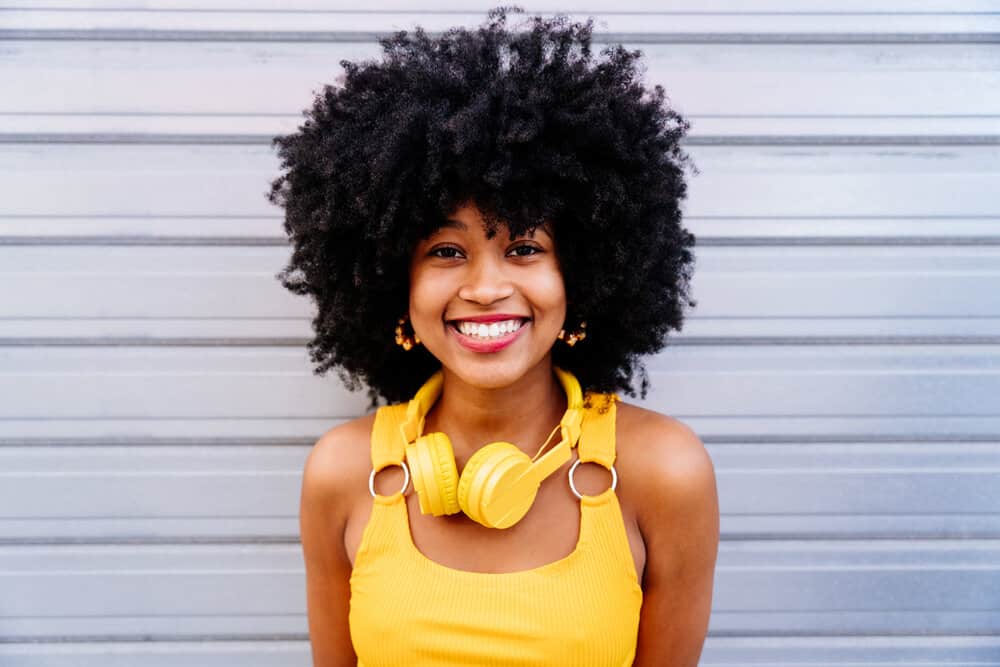
How Often to Shampoo Hair
You now know without a shadow of a doubt that you shouldn't wash your hair every day if you can help it. But how often should you shampoo your hair? The answer is that it depends. As frustrating as that answer is, there's a good reason for it.
Everyone's hair, haircare routine, styling techniques and products, and personal preferences vary. So, a hair-washing routine that works for one person may not work for someone else.
But the rule of thumb to keep in mind when planning out your shampooing routine is that you should only wash your hair as needed. That means that you shouldn't do it if your hair is clean.
For most people, a shampooing frequency of every other day works well, while others can go a week between shampoos.
The curlier your hair is, the drier it will be naturally. So, if you have curls, stretching out your wash sessions would be advantageous, allowing your hair to retain more moisture.
Here are some quick wash day recommendations for different hair types:
- Tight Curls: If you have tightly curly hair, we recommend starting with a weekly wash day.
- Loose Curls and Waves: For looser curls and waves, try washing your hair twice a week.
- Straight Hair: For straight hair, a wash frequency of every other day is a good starting point.
Note: If, at any point, you feel like your wash frequency is not working for you, try lengthening or shortening the time between your wash days. Also, if you're a particularly active person, you may opt for more frequent wash days.
Do Shampoos Condition the Hair?
Though some shampoos do have conditioners and smoothers in them, shampoos rarely condition the hair to the extent it needs to be healthy. That's part of the reason why we have to condition our hair after washing it.
Shampoos are designed to primarily cleanse the hair - not condition it. So, never skip your conditioner after a shampoo session.

Do Shampoos Make Your Hair Grow?
You may have seen hair growth shampoos on social media or at your favorite online and brick-and-mortar retailers. Could they help your hair grow?
It depends on three things:
- Whether your follicles are functioning properly. Hair growth shampoos aim to support hair follicle and scalp health to promote hair growth. If your hair follicles are already performing at peak capacity, you won't notice much of a change by using a hair growth shampoo.
- Whether the shampoo actually contains prescription-strength hair growth ingredients in a high enough concentration to facilitate change. A lot of times, shampoo manufacturers add one non-prescription ingredient to their shampoo and call it a hair growth shampoo. It may be a vitamin that we all can get in our diets. If that's the case, you probably won't see the change you're looking for.
- Whether you use the shampoo according to the manufacturer's instructions and for a long enough span of time. The way you use any product is important - if you stop using your hair growth shampoo prematurely or don't apply the product directly to your scalp, you may be disappointed with the results.
There are some great hair growth shampoos out there that contain potent active ingredients, like minoxidil and finasteride, which work on a molecular level to stave off hair loss and stimulate healthy hair growth from the follicles.
Bosley is a brand known for providing outstanding hair loss products for those who want to maximize their hair growth potential.
How to Use Your Shampoo for the Best Results
People are usually flabbergasted when they find out that they've been using their shampoo improperly. But this is often the case. You probably watched your mom or sister use shampoo and mimicked them, thinking they were doing it right.
Well, we're here to tell you that there is, indeed, a right way and a wrong way to use shampoo. Here's the right way:
- Get in the shower and drench your hair with lukewarm water. It's not a good idea to use hot water, as it may dry out your hair and scalp before you even reach for the shampoo. Take the time necessary to wet your hair all the way down to the roots.
- Separate your hair into up to 6 sections depending on how thick or curly your hair is. Straight, fine hair types won't require this, but thick, 4c hair (and other curly hair types) should be separated to ensure that the shampoo can reach your scalp. If you do end up sectioning your hair, put a clip on each of the sections.
- Release one of the sections of hair (if you separated your hair).
- Dispense some shampoo into your hands and rub them together.
- Apply the shampoo to your hair in medium-sized sections, focusing on the roots. The roots are where the scalp's natural oils and hair products tend to accumulate.
- Massage the shampoo into the roots of a section while you hold the length of your hair taut. Doing so will keep your hair from getting tangled. When you scrub your scalp, you should use the pads of your fingers to make small, circular motions.
- When you're done shampooing one section of hair, rinse thoroughly and move on to the next section.
- After shampooing and rinsing all of the sections, do a final rinse to ensure that all the shampoo is gone.
- If your hair is still feeling oily or gunky, you can repeat the shampooing process, but it's not mandatory. In fact, not repeating the shampooing process can be healthier for your hair, given that over-shampooing can lead to a plethora of problems (as mentioned earlier).

Shampoo Alternatives
Over time, people all over the world have found that shampoo isn't always the right choice for their hair. Luckily, there are alternatives out there to periodically or permanently replace your typical shampoo:
- Baking Soda Paste - Baking soda has clarifying properties and an abrasive texture, both of which make it a great hair cleanser. It can lift away dirt and debris and often tends to be gentler on the hair than traditional shampoos.
- Cowashes - Cowashing is the act of using conditioner to wash your hair in place of shampoo. The conditioner may be your regular rinse-out conditioner or a specialized conditioner that contains cleansers. The great thing about co-washes is that they give the hair a gentle clean without stripping it of all moisture.
- Bentonite clay - Bentonite clay is, as you might expect, clay. It comes in the form of a powder that you moisten with water. The clay has detoxifying properties that can cleanse hair oils, dirt, and even product buildup from the hair.
- Apple Cider Vinegar (ACV) - ACV is widely used in the natural hair community in the form of a hair rinse to remove impurities and smooth the hair cuticles for smoother hair. You can also soak your hair with ACV or add it to your shampoo to boost its clarifying power.
The Best Shampoo Type For All Hair Types
We all know that there are some awfully harsh shampoos out there, and you may have used some of them. Though that's the case, there are also amazing shampoos formulated with just enough cleaning power to get rid of the gunk on your hair without harming your strands.
These shampoos tend to be sulfate-free and contain hydrating ingredients that combat any dryness that could come from the cleansing process.
What Does Blue Shampoo Do to Your Hair?
Blue shampoo is designed to counteract brassy or yellow tones in blonde or highlighted hair. This type of shampoo contains blue pigments that neutralize the orange and yellow tones in the hair, making it appear cooler and more toned. Remember that you shouldn't use it too often, as it can lead to a blueish tint in your hair.
What Does Detox Shampoo Do to Your Hair?
Detox shampoos are formulated to remove buildup from styling products, chlorine, and minerals from hard water. These shampoos contain ingredients like activated charcoal or clay that absorb impurities and leave the hair feeling deeply cleansed. It's best to use detox shampoo once a week or as needed, as it can be quite drying to the hair.
What Does Tea Tree Shampoo Do for Your Hair?
Tea tree shampoo is an excellent choice for anyone with oily or dandruff-prone scalps. This type of shampoo contains tea tree oil, which has natural antibacterial and antifungal properties. It can also help to soothe an itchy scalp and reduce dandruff while also leaving your hair feeling clean and refreshed.

What Does Green Shampoo Do to Brown Hair?
Green shampoo is specifically formulated for those with brown hair. It contains green pigments that work to neutralize the red tones often found in brown hair. This type of shampoo is also recommended for those who have color-treated brown hair, as it can maintain the vibrancy of the color and prevent it from fading.
What Does Red Shampoo Do to Hair?
Red shampoo is designed to enhance and maintain the vibrancy of red or copper-toned hair. It contains red pigments that work by depositing color onto the hair shaft, adding depth and richness to the existing shade. Red shampoo is particularly useful for those with color-treated red hair, as it prevents it from fading or becoming brassy over time.
What Does Apple Cider Vinegar Shampoo Do for Your Hair?
Apple cider vinegar shampoo helps restore the natural pH balance of the scalp. Because apple cider vinegar is a natural clarifying agent, it can also help to dissolve product buildup and remove impurities. Another benefit of this shampoo is that it can help detangle the hair because the vinegar helps to smooth the hair cuticle.
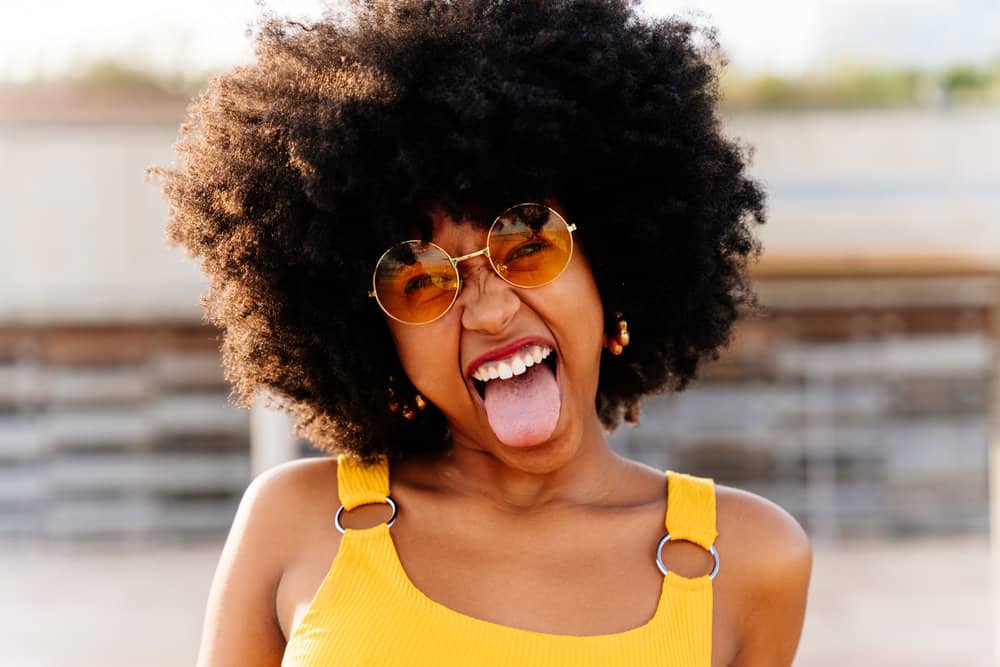
What Does Silver Shampoo Do to Your Hair?
Silver shampoo enhances and maintains the color of silver, white, or blonde hair. Its violet pigments neutralize the yellow and brassy tones often found in lighter hair colors. This shampoo is particularly useful for those with color-treated or naturally silver, white, or blonde hair, as it can help maintain the hair's brightness and cool tones.
What Does Pink Shampoo Do to Your Hair?
Pink shampoo helps prevent the fading of pink or rose gold hair colors. This is especially important for lighter hair colors that are more prone to fading because of UV exposure, heat styling, and harsh chemicals. Pink shampoo typically has a blend of pigments that work by depositing color onto the hair, helping to intensify and enhance the hue.
What Does a Bonding Shampoo Do?
Bonding shampoo is a great choice for those with damaged or brittle hair who want to repair their hair bonds. It makes your hair stronger and more resilient, with amino acids and proteins that penetrate the hair shaft to rebuild broken bonds. Bonding shampoo helps prevent breakage and damage to the hair while adding moisture and nourishment.

What Does Hydrating Shampoo Do for Your Hair?
Hydrating shampoo adds moisture to dry, damaged, or brittle hair. It typically contains natural oils, vitamins, and humectants that penetrate the hair shaft and hydrate the hair from the inside out. Many formulas also contain ingredients like keratin and panthenol, which repair and protect the hair from damage while adding volume and thickness.
What Does Clarifying Shampoo Do to Colored Hair?
Clarifying shampoo is formulated to remove buildup from the hair and scalp. While this type of shampoo is great for those with oily hair, it can be too harsh for colored hair. Clarifying shampoos can strip the color from the hair, leading to color fading or unevenness. It's best to use a clarifying shampoo sparingly and only when needed.
So, there you have it - everything you need to know about what shampoo does.
It's a little more complicated than you might have initially thought, but the more you know, the better choices you can make for your hair. We hope you found all the information you were looking for, and we wish you the best with your hair.


